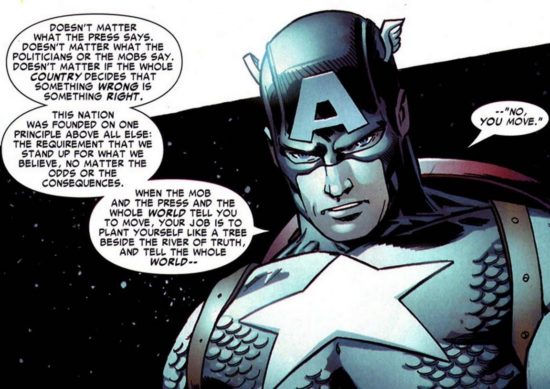
So you’ve just been elected to the state legislature.
Here are some things you should know and be prepared for. (These are based on my own experiences and observation in the political arena and are my own opinions, not those of any other individual or organization.)
1. This is not a career. This is not your identity. This is an “in addition to.â€
2. There’s a big difference between a campaign speech and a vote. You’re going to face a crisis of belief after you get in. You’re going to face the question “What DO I actually believe?†And you’re not necessarily going to have an immediate answer. Be prepared for this. It’s a watershed moment and your response will define who you are going forward. Also, don’t try to do it solo. This is what trusted advisors are for.
3. It’s not enough to vote right. Most political fights happen behind the scenes, and your constituents won’t ever know unless they pay super close attention (and many times not even then). People who will show up and press the red button are fairly easy to find. People who will actually fight bad policy using the entire system are rare. You need to decide now whether you’re going to be half-hearted about this or go all in.
4. Conventional wisdom says to lay low till you get the hang of things, and remember your place as a newbie. Don’t do it. This isn’t what you were elected for. Patrick Henry started the American Revolution by opposing the stamp tax before he’d been in office for a month. Don’t get half-cocked about it (there will be times you should keep silent and learn), but remember that this isn’t about you or your career and certainly not the traditions of the legislature. It’s about your constituents, and they deserve representation.
5. Be prepared to make mistakes. You’ll fall on your face if you actually do jump in and get moving, but it’s better to do that than to atrophy. It’s also how you learn. Don’t sweat it when it happens.
6. There are a lot of unspoken rules. Many of those rules are not in the favor of good policies. Ignore them. Others are based in courtesy or at least do no harm. It’s a respectful thing to follow those. If you do the right thing, you’ll be upsetting a lot of people there by turning convention on its head. So follow convention where you can.
7. Work hard, read the rules, and study the system. The worst possible situation is to have an opinionated gonna-change-the-world upstart going in like a bull in a china shop who has no idea what he’s doing. They will despise you, and rightly so. Being principled and believing right is no substitute for doing the hard work. Remember, respect has to be earned.
8. When a man’s ways please the Lord, He makes even his enemies to be at peace with him (Proverbs 16:7). I’ve seen this over and over. Regardless of what conventional wisdom says, as long as you do justly, love mercy, and walk humbly, you can be at peace even with your political opponents. Conversely, if you are arrogant, abrasive, and vindictive, you will not be at peace with your opponents and it will be your own fault.
9. It’s a club, and in many ways a family down there. There’s a real sense of camaraderie and a strong pull to be included. In some ways, this is a good thing. But know that truly belonging in the capital means not truly belonging to the people. Enjoy the friendships, but remember that allegiance lines, while invisible, are no less binding. Choose who you are going to belong to before you go down there.
10. Stopping bad bills is your #1 job. Passing good ones is secondary.
11. The greatest force in politics is inertia, and the leadership is very, very effective at sending things into motion. This is one reason opposing the leadership (to pass and to kill bills) is so difficult. That said, the fact that the political process is designed to be difficult is another source of inertia and is your biggest asset when it comes to stopping bad bills. Saddle that inertia. Now, this means you have to know the rules and the system like the back of your hand, and you have to be willing to break the unspoken rules and conventions and be willing to offend and be thought crazy. But it can be done, and it’s your job to do it.
12. Politics is more like farming than fighting. There’s a lot of boring, hard, mundane work. Victories and exciting moments are few and far between. It takes strategy, planning, and long-term commitment. So don’t sweat the failures and the barren stretches. Live for the goal, not the victories. This perspective is what will keep you from burnout.
13. Don’t listen to the flattery. Proverbs was written for these kinds of situations. You’ll be buttered up wherever you go (for the most part). Remember that lobbyists get paid to make you feel good about yourself. Be friendly, listen, (most of them really are nice people), but don’t fall for it.
14. Guys, there are a lot of attractive women in politics. Please, please be careful. You have two things to watch out for: good working relationships that get out of hand, and intentional manipulation for nefarious reasons. The dangerous thing about both of these is that you may not even realize what’s going on until it’s too late. The capital is a place you need to bend over backwards to both avoid all appearance of evil and keep your heart on the straight and narrow. Establish your boundaries ahead of time and stick to them.
15. Different people and organizations have different roles, and that means that even when they are on the same side, they’ll respond to the same situation in very different ways. This is how it’s supposed to be. If you understand this, it will save you a lot of heartburn.
16. There is such a thing as friendly fire. There will be times when as a legislator, you know things the grassroots don’t know, and that necessitate actions they will not understand. You’ll try to explain, but they won’t always listen. This is the price of serving your country. Be prepared for it.
17. Compromise where you can, but where you can’t, don’t (h/t Peggy Carter). There will always be a tension to manage between principle and strategy, but there are also things that should not be on the table. One of the most poignant movie lines I’ve ever heard is from the lapdog Senator in Mr. Smith Goes to Washington: “I compromised. Yes, so that all those years I could sit in that Senate and serve the people in a thousand honest ways.†Those guys are why our country is such a mess.

Be THIS guy.
18. The most important characteristic in any leader is a healthy reluctance. The moment you lose that, the moment the office becomes more important to you than the reason you ran, that is the moment you need to get out.
Very good truths, Hannah. I agree with everything you said. Considering how much you said, that in itself is noteworthy!